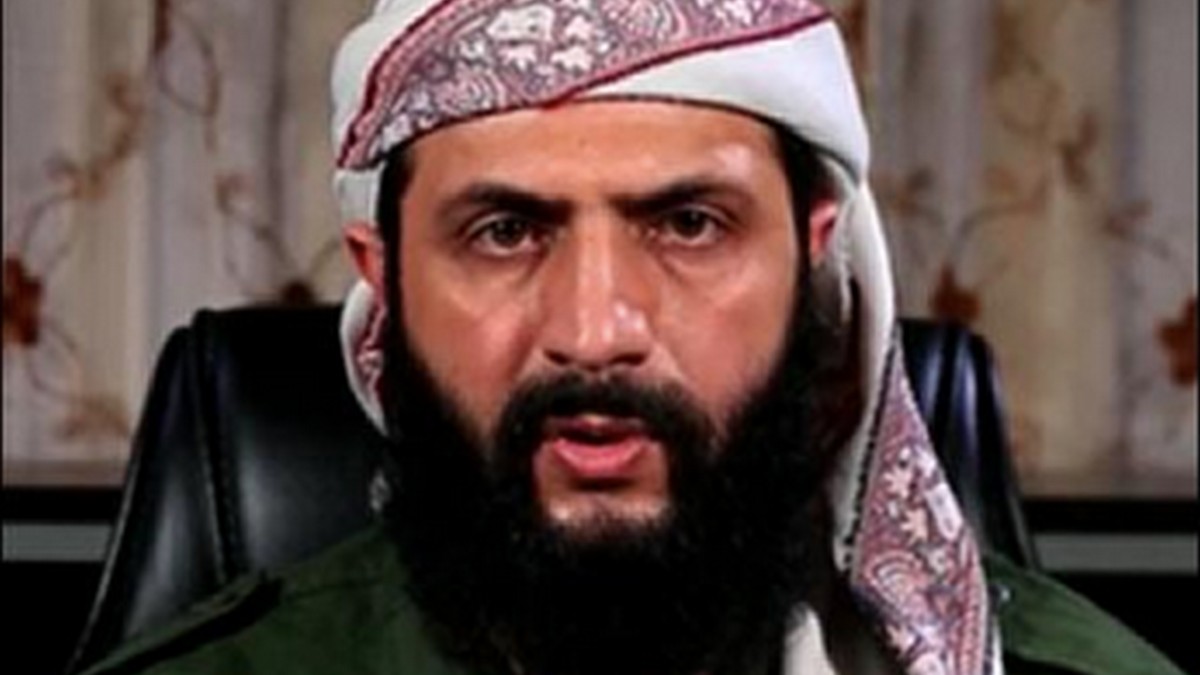Syria’s civil war is back in the spotlight.
After years of little action on the frontlines of the war, rebels led by the Islamist Hayat Tahrir al-Sham (HTS) group swept into Aleppo.
The rebels launched their surprise offensive on November 26 and took over the city which has been under the control of the President Bashar al-Assad regime since 2016.
Now, the focus is on one man – HTS leader Abu Mohammed al-Jawlani.
Al-Jawlani has a $10 million bounty on his head as well as a death threat from the Islamic State.
But who is he? What do we know about him?
Let’s take a closer look:
Who is al-Jawlani?
As per New Arab, al-Jawlani was born Ahmed Hussein al-Sharaa in Saudi Arabia’s Riyadh.
His parents, who hail from Syria’s Golan Heights, had to flee after Israel seized the territory in 1967.
As per The Wall Street Journal, the 42-year-old took the name al-Jawlani in a nod to his family’s roots.
al-Jawlani’s family returned to Syria in 1989.
In March 2003, al-Jawlani got on a bus from Damascus to Baghdad. He was off to fight American troops getting ready to invade Iraq.
In Iraq, al-Jawlani was captured in combat. He spent the next five years in an American-run prison camp.
By the time he returned to Syria in 2011, with bags bulging with cash and the Islamist mission in his heart, al-Jawlani was a representative of the Islamic State founder Abu Bakr al-Baghdadi.
The Syrian civil war was just kicking off.
As per New Arab, al-Jawlani would join the Jabhat an-Nusra, then the Syrian wing of al-Qaeda, which was taking on Assad as well as the moderate Free Syrian Army.
Split with IS, al-Qaeda
But the next year, al-Jawlani fell out with the Islamic State.
While the Islamic State was focussed on building its global caliphate, al-Jawlani felt the real enemy was Assad.
The Islamic State then declared Jawlani an apostate – a charge that is punishable by death.
By now, al-Jawlani’s Jabhat an-Nusra was taking on the Islamic State in various battles, often fighting alongside moderate Syrian rebels.
al-Jawlani later cut ties with al-Qaeda in 2016.
In 2017, al-Jawlani coalesced several factions of the Syrian Islamist movement to form the HTS.
It was a successor to the al-Nusra Front, which was formed in 2011.
Meanwhile, the United States put a $10 million bounty on his head, as per The Wall Street Journal.
According to New Arab, the HTS, which governs large parts of Idlib, has set itself up as the Syrian Salvation Government (SSG).
Though the HTS split with al-Qaeda, there have been protests against the regime – alleging torture and corruption.
al-Jawlani responded by reforming the HTS’ internal policing forces, announcing new elections to its General Shura Council and promising to create local councils and unions.
Jawlani has said the HTS’ governance should be Islamic, “but not according to the standards of Islamic State or even Saudi Arabia.”
As per Washington Post, the HTS has not banned smoking nor required women to cover their faces.
The morality police had also stopped patrolling the streets by January 2022.
al-Jawlani has called the HTS being labelled a terrorist group as “unfair”.
“First and foremost, [Idlib] does not represent a threat to the security of Europe and America,” al-Jawlani was quoted as saying. “This region is not a staging ground for executing foreign jihad.”
What do experts say?
That al-Jawlani’s split with Al Qaeda and the Islamic State is for real.
“His and his group’s break with Islamic State and al-Qaeda is very genuine. They haven’t been part of these entities longer than they were with them, and it’s now been essentially 8½ years that they have forsworn global jihad,” Aaron Zelin, senior fellow at the Washington Institute for Near East Policy and author of a recent book on HTS, told The Wall Street Journal.
Dareen Khalifa, a senior adviser at the International Crisis Group, told the newspaper, “The HTS leadership is pragmatic and utilitarian, and less ideological.”
“Jawlani is not a cleric, he is a politician who is ready to strike deals and is very compromising on a lot of things—except fighting against the regime. Don’t underestimate this guy’s ambition.”
“They’ve learned how to play the game,” Alberto Miguel Fernandez, vice president of the Middle East Media Research Institute and a former State Department coordinator for counterterrorism communications told The Wall Street Journal.
“They still have what we would call extremist ideology, but they are not stupid extremists, and they are nationalist extremists. Jawlani knows that he has to moderate his tone, for example, on minorities, because this is something that people in the West will throw in his face.”
With inputs from agencies


)

)
)
)
)
)
)
)
)



